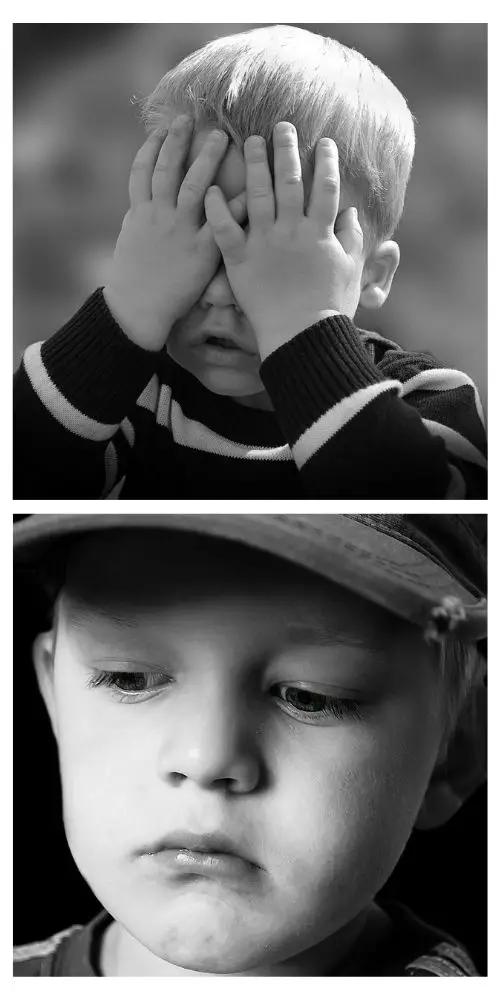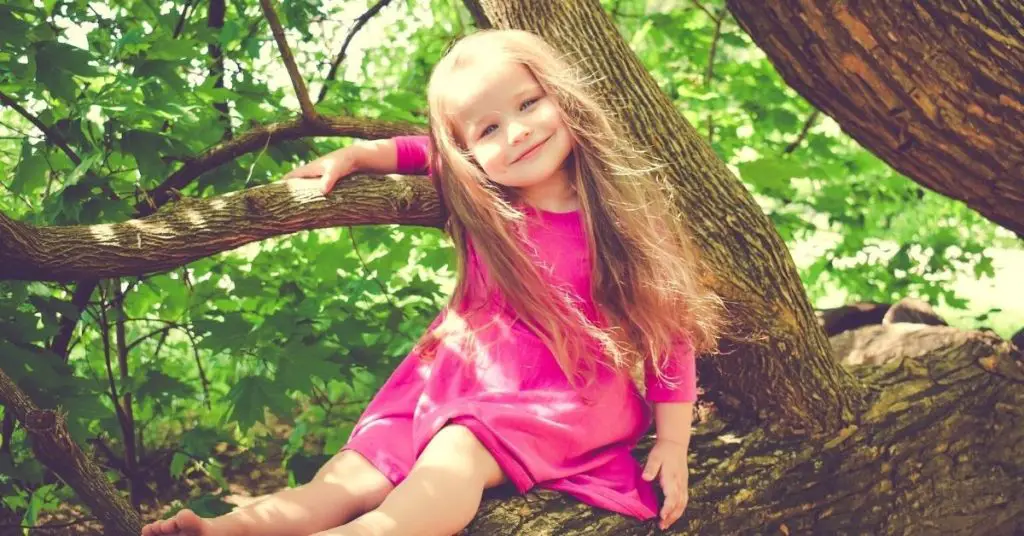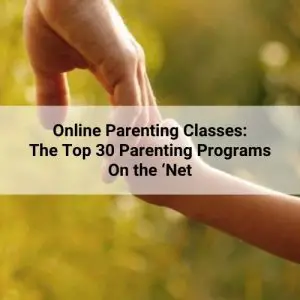Every parent has a different style. Some concentrate on positive parenting, others try to be as hands off as possible and there are even some who fall into the dreaded “helicopter parent” category.
The first step to getting away from helicoptor parenting is to recognize that you are one in the first place. Read through these signs to see if they describe your way of parenting. It’s the first step to changing.
Table of Contents
1. You Solve Every Problem They Have
Your child didn’t finish their homework? That’s okay, you can finish it for them.
They can’t tie their shoes even though they’re old enough? That’s okay, you can tie them.
See where I’m going with this?
There’s a fine line between helping and hurting your child when it comes to parenting. One of the primary ways we learn and grow as human beings is by struggling.
Think about it, a child learns to walk by falling. Eliminating falling promotes effective movement.
Take a step back, let them struggle with age-appropriate things and experience disappointment, then use those moments to teach them how to overcome challenges on their own. The confidence it will build within them will be worth it.
2. You Teach Their Teachers
If you’re one of those parents that walks in on the first day of school with a three-ring binder detailing the ins and outs of your child for their teacher to look over, you might want to rethink your parenting strategies.
Expecting the entire world to bend around your child’s unique situation simply isn’t feasible. And what’s worse, if you keep it up, as your child gets older, that’s what they’ll expect. They’ll be shocked when everyone doesn’t stop on a dime to cater to their wants and whims, and the results could be disastrous.
Teaching your child to deal with the different personalities they’ll inevitably encounter will leave them far better off.
3. You Do All The Talking
You might pride yourself on knowing everything about your child but do your best not to let that steal their thunder.
If you rush to answer every question that adults or even other children ask them, they’ll never practice developing their voice. And no, I don’t mean their actual speaking voice, I mean the voice of their personality.
It’s quite possible this will lead them into being quiet when they should speak up or avoid healthy confrontation. Not to mention, if you answer every question for them, you could inadvertently lead them down an unhealthy road of self-doubt.
Letting them do the talking allows them to learn things about themselves and be confident in their own thoughts and feelings. Let your kiddo answer questions from older adults and friends, even if you know better.

4. You Do Chores They Could Do
I get it. It’s easier to do things for kids when they’re younger.
Their little fingers don’t have the dexterity for folding clothes. One wrong move unloading the dishwasher can mean a broken plate.
But children don’t stay young forever. They become capable of responsibility. But if you hog all the responsibility for them, they could incorrectly assume they should never have any.
There are plenty of examples of age-appropriate chores for your children as they grow. Learning to have some responsibility as they grow will help them come to trust themselves as adults more easily.
5. You Choose For Them
Do you ever let them pick dinner? Or choose what kind of clothes they want to wear? Or what books they want to read?
I hope you’re starting to see the pattern here. Much of discovering who we are as human beings comes through trial and error.
If you have everything in their life planned and plotted out just the way you want it to the point where they never get a say so, they’re never going to learn how to make bad choices. The thing is though, they will one day. You’d rather it be under your roof.
Allowing your children to choose is really about extending your trust to them. Remind yourself you’re trusting them to learn to make the right choices, and more often than not, they will.
6. You Never Let Them Play Alone Outdoors
Abductions get lots of media attention, and no one would ever recommend your child be in a vulnerable situation, but do you ever let your child out of your sight? Are you willing to let them take their bike around the block? If you don’t live in a place where that’s possible, maybe a change of scenery is in order. Playing outdoors, unsupervised, gives children confidence, reduces stresses, and introduces them to the concept of freedom like never before. It will give you the opportunity to have conversations with them about strangers and other potential threats that you should be doing anyway. Many cell phone providers offer smartwatches for children that allow you to track their locations and call them if need be, so that’s also an option if you’re still not comfortable letting them go completely unsupervised. You can also teach your kid about gardening and let them get dirty. This handy garden tool set will help you do the trick. Click here to view product on Amazon.
7. You Don’t Let Them Take Risks
Please tell me your children are allowed to climb small trees, or forego knee and elbow pads while riding their bike to their neighbors house, or occasionally turn in homework without you checking over it.
Never letting your child do something a little daring could wire them into a risk-adverse adult who avoids challenges over a fear of what might happen. Resilience is built through failure, not avoidance.
I’m not saying your kids should be allowed to lay down and take a nap in the street, but they should be able to cross it without holding your hand at a certain age, right?
8. You Smooth Out Bumps In the Road For Them
You shouldn’t rush to fix your child’s emotions every time they get upset or mad. Anger and sadness are inevitable facets of the human condition. Happiness itself is temporary. Think about it.
For you, an adult, with all the stresses of being adult, a lot of things have to go right for you to be truly happy, excluding things like being joyful or grateful. I’m talking about that true feeling of happiness that comes from achieving a lifelong goal, getting a big promotion, or meeting the love of your life.
Children are much easier to keep happy. A piece of candy and their favorite TV show can easily help them forget about the older kid that bullied them at school.
But if you’re always just trying to keep them happy instead of helping them deal with those other, less desirable emotions, you could be unwittingly leading them into a lifetime of anxiety and depression when they get older and you aren’t around to fix all their problems for them anymore.
Talk your child through emotional difficulties instead. Acknowledge their feelings, remind them of the purpose of those feelings, then show them ways to deal with them.
9. You Worry About Them Excessively
There’s nothing wrong with a little parental concern for the well-being of your child, but if you have that nagging feeling in your chest about something they’re doing every day, you might be a victim of anxiety yourself.
The problem with worrying about anything is, the more you do it, the easier it becomes.
If you’re constantly asking your child if everything’s fine, they may start to question whether or not it is, and take up the habit of worry themselves. Do your best not to call them excessively throughout the day if they’re older.
Again, the problem may not be with what your child is doing, but with you. The stress of rearing a child can cause things like anxiety to surface in otherwise healthy adults. If examination reveals your worries are more or less unfounded, it might be time to talk with a counselor.
10. You Don’t Accept Failure
This one can often masquerade as ‘wanting the best for our children’.
You come down hard on them over everything. You never let anything slide or show grace.
There’s a nobility in working your way through an impossible problem but not at the expense of a child’s psyche. Your child may come to hide all failures from you in an attempt to maintain your relationship.
However, you should be the one showing them that you’ll continue to love them in spite of their failures. I don’t mean you let them get away with never trying, or believing they are a failure, or think they can get away with failing from a lack of effort, just that your home should be a safe place to deal with their inevitable failures.
Failure is natural part of life. We can step in and interfere when they’re younger because we’ve played that game before, but I believe it’s far better to occasionally let them fail under the right circumstances so they can understand that failure isn’t the end.
Teach them about things like perseverance and self-love in the face of failure. Then they’ll understand that even when they do fail, you’ll always be there for them.
Parenting is tough. We’re constantly told conflicting information and even praising and encouraging your children are open for debate. We are all just trying to get through 2022 as best we can and look to a brighter future. If you find yourself exhibiting any of these helicopter parenting traits. Don’t worry. Recognition is the first step to improvement.

Related Articles:

Adam MacDaniels
A dad of two little girls plus he's a trained Paramedic and a Firefighter. Is there anything that Adam MacDaniels can't do??





